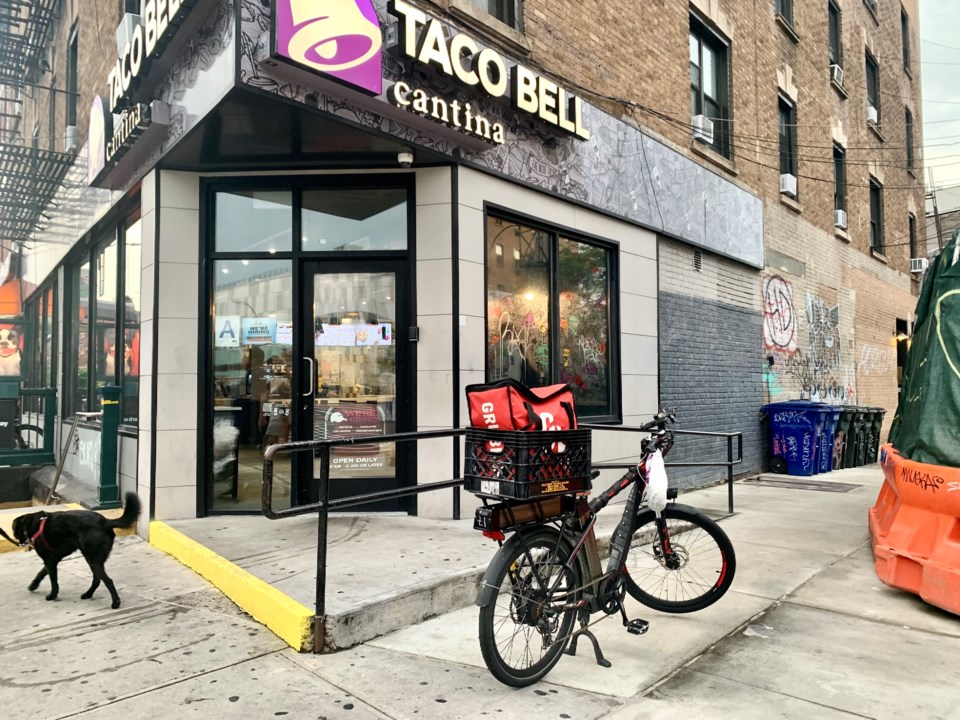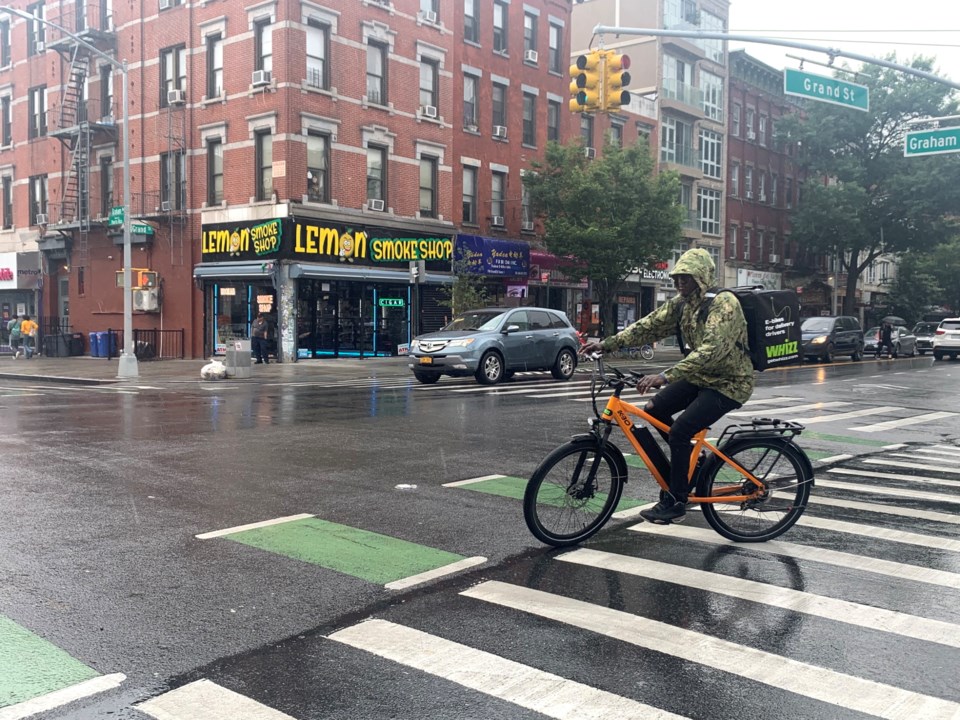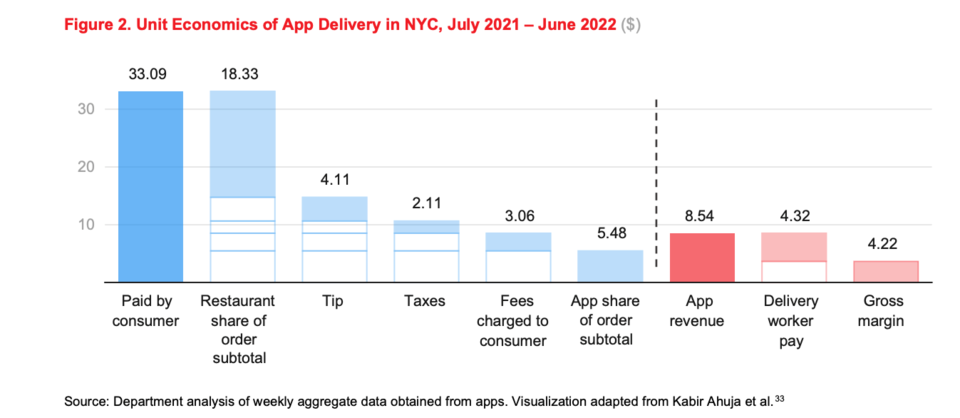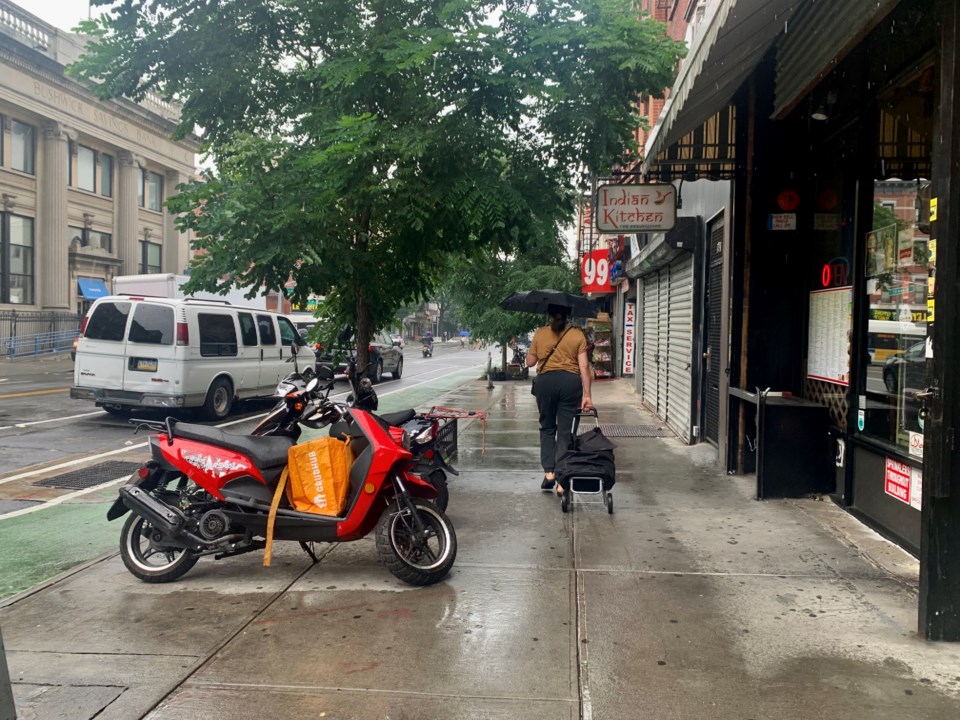On June 20, the NYC Mayor Eric Adams's Administration made headlines for proposing a new minimum hourly wage of $17.96 for the 65,000 app-based restaurant delivery workers in New York City, making the city the first in the country to do so.
“These apps currently pay workers far below the minimum wage, and this pay rate would help lift thousands of working New Yorkers and their families out of poverty,” said Vilda Vera Mayuga, the commissioner of the Department of Consumer and Worker Protection.
Yet, just days before its enforcement on July 12, Manhattan Supreme Court Judge Nicholas Moyne stalled the rollout after app-based delivery companies including Uber, DoorDash and Grubhub sued the city.
Now, as the end of July approach and with little information on when or if the law will go through, delivery workers and the groups that support them are feeling frustrated and back to square one.
According to a report by the NYC Department of Consumer and Worker Protection last November, food delivery workers make $14.18 with tips and $7.09 an hour without tips. After expenses, the earning is $11.12 an hour with tips and $4.03 without, which means that consumers are largely responsible for the livelihood of the workers, not the companies.
“There is simply no justification for allowing multi-billion dollar apps to continue to pay sub-minimum wages," said NYC Comptroller Brad Lander in a statement. “I’m angry about the months-long delay in implementation, which violates the law and forces the delivery workers who kept us fed through the pandemic to wait even longer for an overdue pay raise.”
In Brooklyn, Los Deliveristas Unidos (LDU), a group working toward giving app delivery workers access to basic labor rights, expressed a variety of opinions on where to lay the blame-- particularly since the mayor's proposal of $18/hour for app-based delivery workers was a step back from his original proposal of $24.
In November 2022, concurrent with the report, the City proposed a $23.82 minimum wage for delivery app workers, but then, after pushback comments from app companies and industry groups among others, came up with a new plan five months later that would require food delivery companies to pay their couriers $17.96 per hour, which would increase to $18.96 an hour in April 2024 and $19.96 in April 2025.
“It’s a slap in the face to promise delivery workers a $24 minimum wage only to change all plans at the last minute and reduce it to $19 per hour,” said a delivery worker named David.
Another worker, Gustavo, said that there would be times when he’s on the app for 10 hours and only gets paid $60. “They treat us unfairly, and only use us when they need us. It would be fair to get paid hourly.”
Delivery workers were called front-line heroes and essential workers not long ago, consumer Holly Gunder said. “Now, when it’s our administration’s turn to pay our workers reasonable wages, they forget their high praise. Eric Adams promised our workers a $24 minimum wage. Though that’s still barely a liveable wage in this city, negotiating it down to $19 is abominable.”
Still, some oppose the idea of the minimum wage altogether, preferring the flexibility that comes with the designation of independent contractor: “I deliver with DoorDash part-time, and use my earnings from delivery work to support my non-profit organization that aims to improve children’s literacy in my home country of Guyana. I am writing in opposition to the requirement under NYC’s proposed pay rule,” wrote Cindy Charles, a full-time student in Brooklyn.
“I need to be able to have an income that allows me to work around my schedule. This is why I’ve chosen this kind of work.”
Josh Gold, an Uber spokesperson, said in a statement sent to the Associated Press that the city is lying to delivery workers: "They want apps to fund this increase by eliminating jobs and reducing tipping while forcing the remaining workers to deliver orders faster,” he said.
Uber Eats said it could not provide any information or connect BK Reader to any department for further comment when reached out.
DoorDash said that it did not oppose the minimum wage but called the city’s approach flawed. “As the city itself acknowledged, higher fees are coming for consumers, which will inevitably mean less revenue for local businesses and fewer earning opportunities for workers," said a DoorDash representative in a press release. "These are impacts that will often be felt by those who can least afford them.”
Still, despite the delivery app companies' concerns for the increased costs to consumers, the consumers themselves continue to back the delivery workers:
“They supported us through the pandemic and risked their lives so we could be fed and sometimes even receive stuff that made us more comfortable while we battled Covid at home,” a consumer named Wren Mack said.
“Now it’s the city’s turn to continue the fight and ensure that all its citizens are taken care of."






.png;w=120;h=80;mode=crop)
